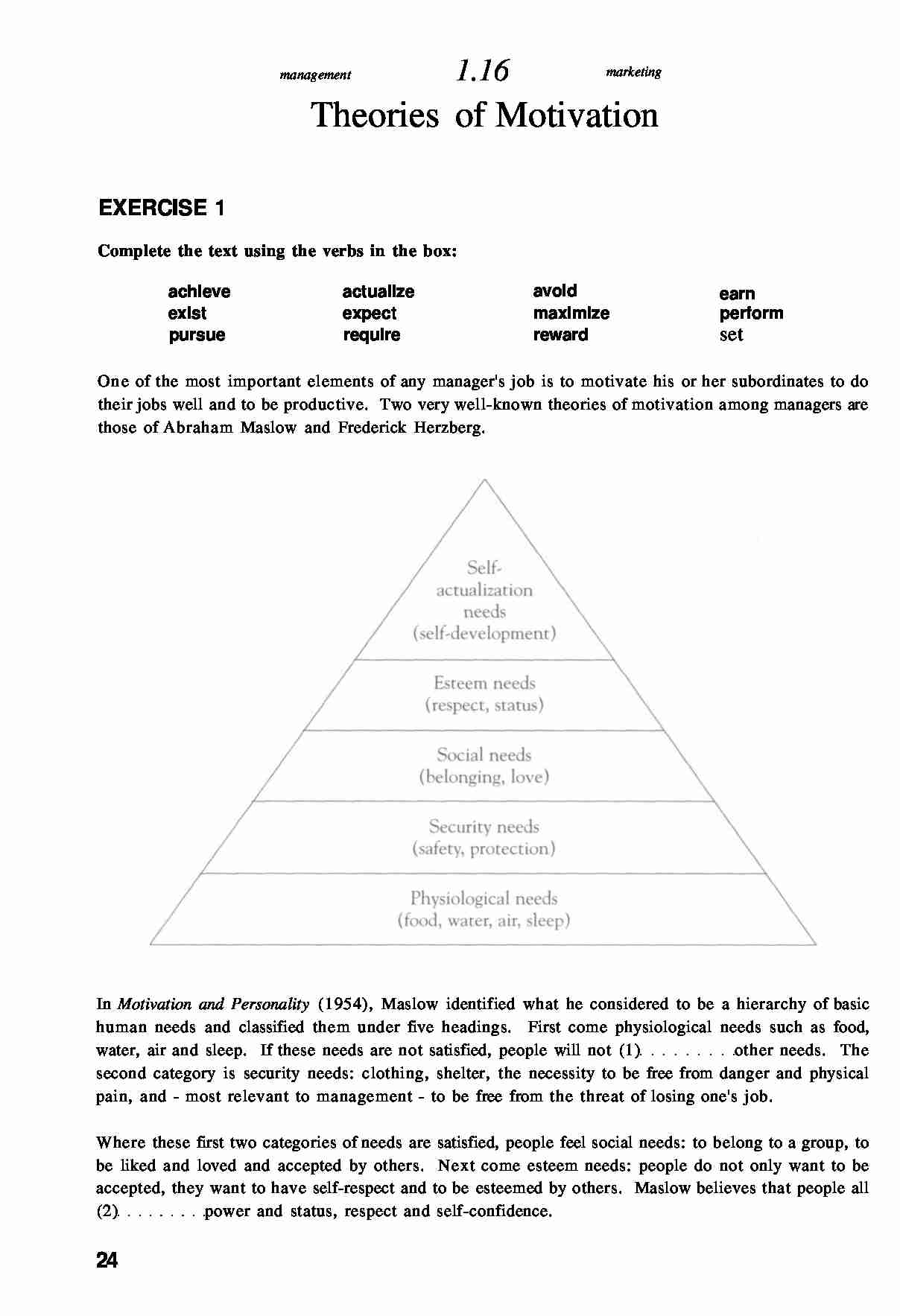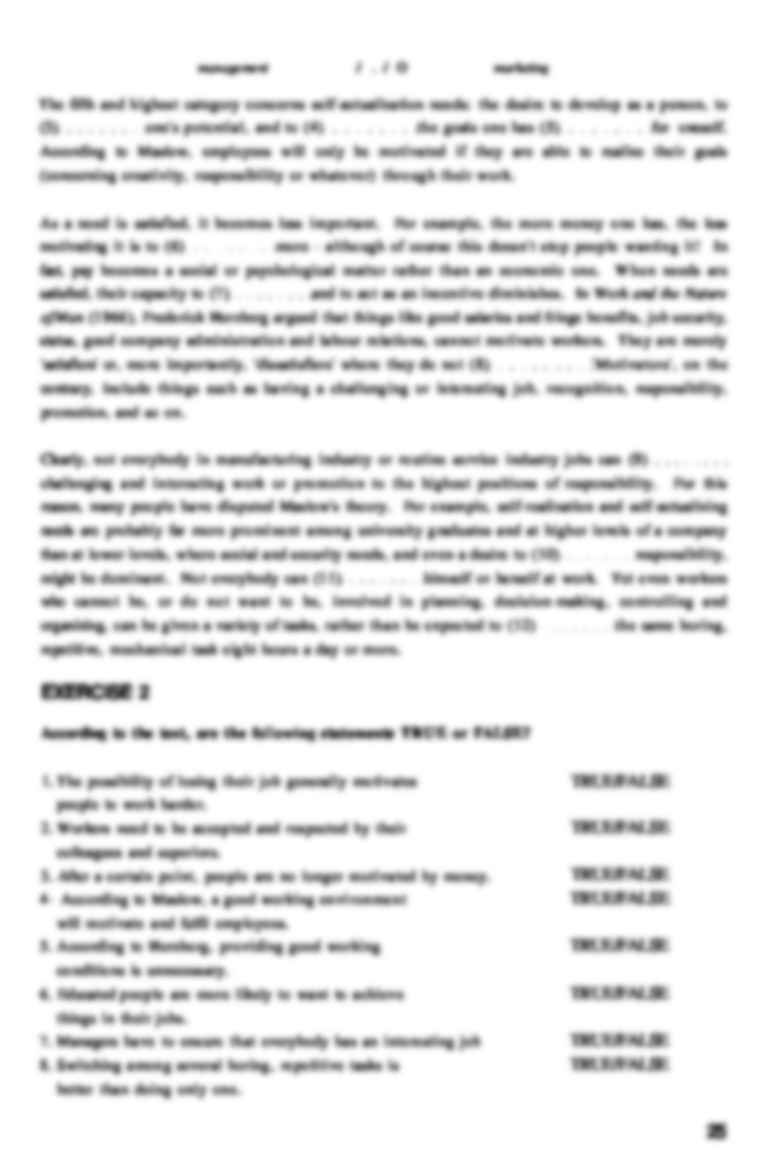management 1.16 marketing Theories of Motivation EXERCISE 1 Complete the text using the verbs in the box: achieve exist pursue actualize expect require avoid maximize reward earn perform set One of the most important elements of any manager's job is to motivate his or her subordinates to do their jobs well and to be productive. Two very well-known theories of motivation among managers are those of Abraham Maslow and Frederick Herzberg. In Motivation and Personality (1954), Maslow identified what he considered to be a hierarchy of basic human needs and classified them under five headings. First come physiological needs such as food, water, air and sleep. If these needs are not satisfied, people will not (1) other needs. The second category is security needs: clothing, shelter, the necessity to be free from danger and physical pain, and - most relevant to management - to be free from the threat of losing one's job. Where these first two categories of needs are satisfied, people feel social needs: to belong to a group, to be liked and loved and accepted by others. Next come esteem needs: people do not only want to be accepted, they want to have self-respect and to be esteemed by others. Maslow believes that people all (2) power and status, respect and self-confidence. 24 management 1 . 1 O marketing The fifth and highest category concerns self-actualization needs: the desire to develop as a person, to (3) one's potential, and to (4) the goals one has (5) for oneself. According to Maslow, employees will only be motivated if they are able to realize their goals (concerning creativity, responsibility or whatever) through their work. As a need is satisfied, it becomes less important. For example, the more money one has, the less motivating it is to (6) more - although of course this doesn't stop people wanting it! In fact, pay becomes a social or psychological matter rather than an economic one. W h e n needs are satisfied, their capacity to (7) and to act as an incentive diminishes. In Work and the Nature of Man (1966), Frederick Herzberg argued that things like good salaries and fringe benefits, job security, status, good company administration and labour relations, cannot motivate workers. They are merely 'satisfiers' or, more importantly, 'dissatisfiers' where they do not (8) 'Motivators', on the contrary, include things such as having a challenging or interesting job, recognition, responsibility, promotion, and so on.
(…)
… of a company
than at lower levels, where social and security needs, and even a desire to (10)
might be dominant. Not everybody can (11)
responsibility,
himself or herself at work. Yet even workers
who cannot be, or do not want to be, involved in planning, decision-making, controlling and
organizing, can be given a variety of tasks, rather than be expected to (12)
the same boring,
repetitive…
... zobacz całą notatkę




Komentarze użytkowników (0)